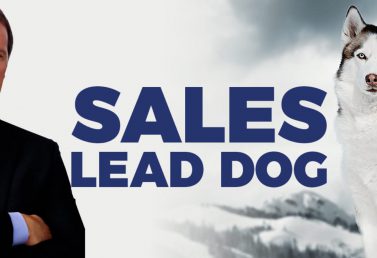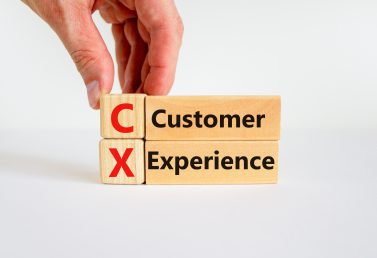Complete the Sales Cycle with CRM
Not sure where customer relationship management (CRM) fits into your sales cycle? Having trouble advancing or letting sales staff go? What separates a “good” salesperson from a “great” one?
In this article, you’ll learn how to recognize top-performing salespeople and how to complete the sales cycle with a professional CRM platform. Plus, you’ll understand how to turn negatives and lost sales into positives and opportunities.
Technology Changes, But Sales Strategy Stays the Same
Over time, the technology that fuels sales strategy continues to improve while communication methods are sharpened and refined. However, the underlying strategy behind successful sales stays relatively the same.
“With sales, pipeline is key. It’s huge,” says Laura Cavanaugh, Vice President of Sales for Ambassador Education Solutions during an episode of The Sales Lead Dog Podcast. “If you don’t have [a] pipeline, you don’t have sales.”
Cavanaugh stresses that an important part of that pipeline is a strong CRM platform and savvy implementation.
“[CRM] is the hub of everything you’re doing in sales,” she explains. “It’s going to make you a better salesperson if you manage it the right way.”
Strong CRM implementation is a way for your sales team to manage all the moving pieces at a glance. Without it, it’s easy to feel lost in the shuffle. And getting lost in the shuffle can mean the difference between a “good” salesperson and a “great” one.
Recognize Greatness in Your Sales Team
“Just having the drive to succeed, having a vision of where you want to go, and how you’re going to get there,” Cavanaugh says made all the difference for her.
“I feel that the best of the best of the best are just innately born salespeople,” she says. “It’s an innate ability.”
Great salespeople, in her opinion:
- Are motivated and driven
- Perform and deliver results
- Know how to network and communicate with people
Cavanaugh is quick to point out that the difference between good and great is also data-driven. The great salespeople on her team, apart from knowing when to send an e-mail or engage a potential customer, are those who consistently go above and beyond to hit 150 or even 200 percent of their quota.
“You want to hold onto the great ones and never let them go.”
Challenges That Sales Leaders Face
Many sales reps are very focused on their own territory, but they can get wrapped up in their own sales bubble. Good salespeople aren’t bad at their job. They just have no desire to or can’t extend beyond their bubble.
A great salesperson, and by extension a sales leader, is one that understands how his or her role influences big-picture company goals.
It can be challenging, but sales leaders need to:
- Recognize when a salesperson has peaked. If a salesperson is happy and fulfilled and still meeting his goals, that’s a win-win for your business and your sales team.
- Recognize when people are ready to move into leadership. Have honest conversations with your sales team. If a salesperson has peaked and seems unfulfilled, move her into a leadership role.
- Recognize when you’re being too empathetic and not pushing enough. Managing your empathy is vital when it comes to sales success. You may like a salesperson and want him to succeed, but it’s your job to draw the line when goals and quotas aren’t being met.
“At the end of the day, they’re going to make their contribution,” Cavanaugh says of salespeople she hires and works with. “And you’re responsible for it.”
When “No” is Good for Business
Cavanaugh explains that one of the hardest things to do as both a sales leader and a salesperson is to reframe negative moments into positive ones.
She’s learned that “no” moments, when reframed, can almost be cathartic. In fact, it’s beneficial to leverage losses into learning moments and take what you learned on to the next sales opportunity.
Cavanaugh and her team take it even farther. After a sale falls through, her team will often approach the client to ask for feedback.
- What did I do wrong?
- What could I have done better?
- What did a competitor do that won them the sale?
These questions are a way to turn a “no” response into a good-for-business opportunity that sharpens future interactions with new potential customers.
“We’re going to do that work to see where we fell short,” explains Cavanaugh of her feedback sessions.
“Sometimes they don’t want to share, but when they do, that’s super valuable,” she says. “Adjust and pivot, so the next time, they won’t get a negative response.”
Professional CRM Implementation Helps
All the above is Cavanaugh’s way of expressing just how important CRM is to her and her sales team(s). That’s why she considers CRM to be the hub that holds her sales strategy together.
“People spend a lot of time going after clients and contacts, and they don’t ever connect with them,” she offers. “They’re not able to move on. That’s just wasted effort.”
It’s professional CRM implementation that makes all the difference. Cavanaugh has learned throughout the years that self-implementation of CRM can be challenging.
She urges business leaders to not make assumptions and to, instead, look under the hood and into the back end before trying to self-implement CRM on their own.
If you’re not making the most of your CRM platform—or, worse yet, you’re paying for features that you’re not using—CRM implementation will be difficult.
That’s why the experts at Empellor CRM are here to help. Our team of CRM professionals knows what businesses need to succeed, and we’re great at helping you manage and improve your CRM strategy.
From CRM implementation to strategy assessment and staff augmentation, we’re able to revitalize the way you think about customer relationship management.
Tired of trying to self-start or simply need a helping hand? The professionals at Empellor CRM have you covered. Contact one of our experts today.


